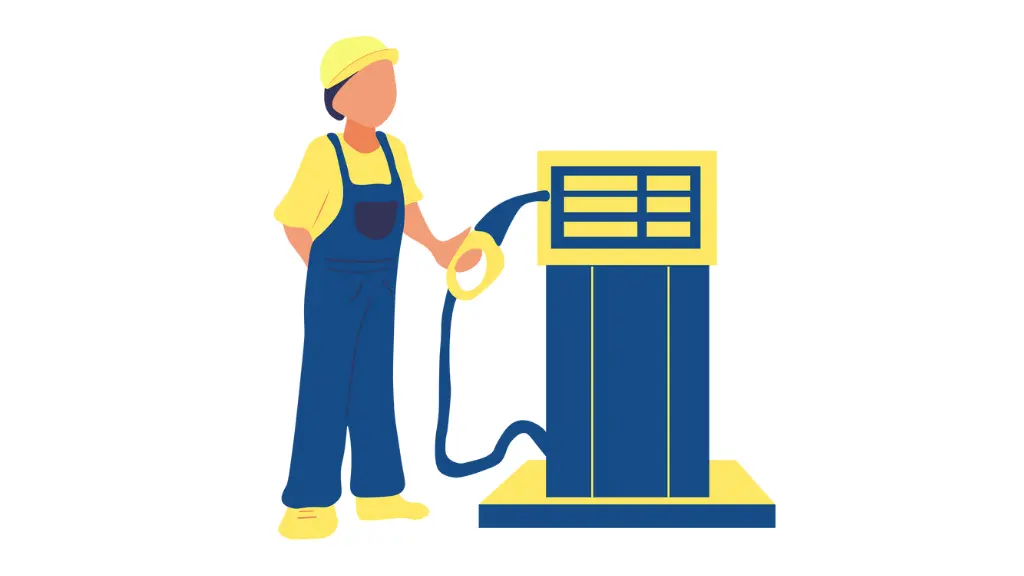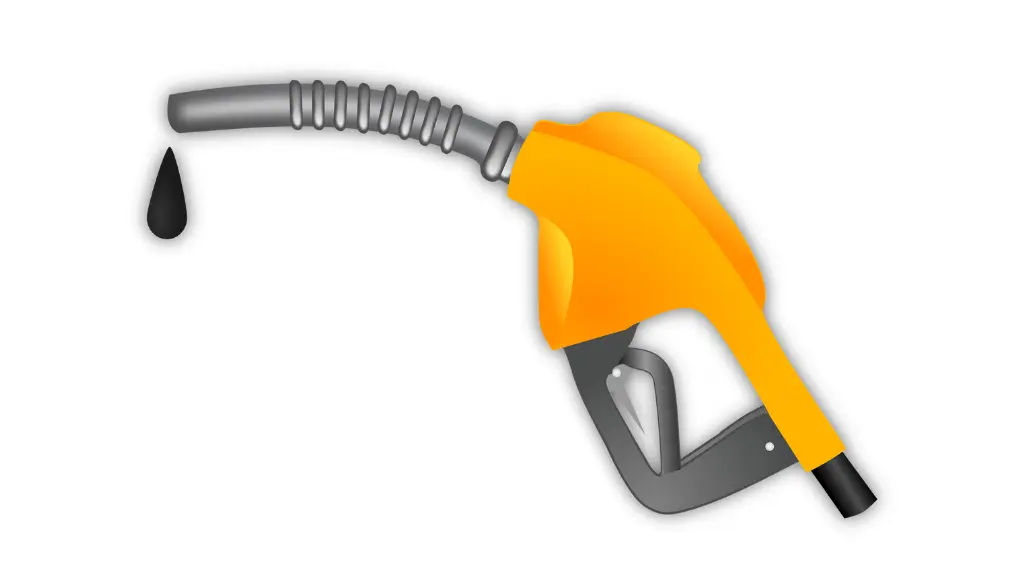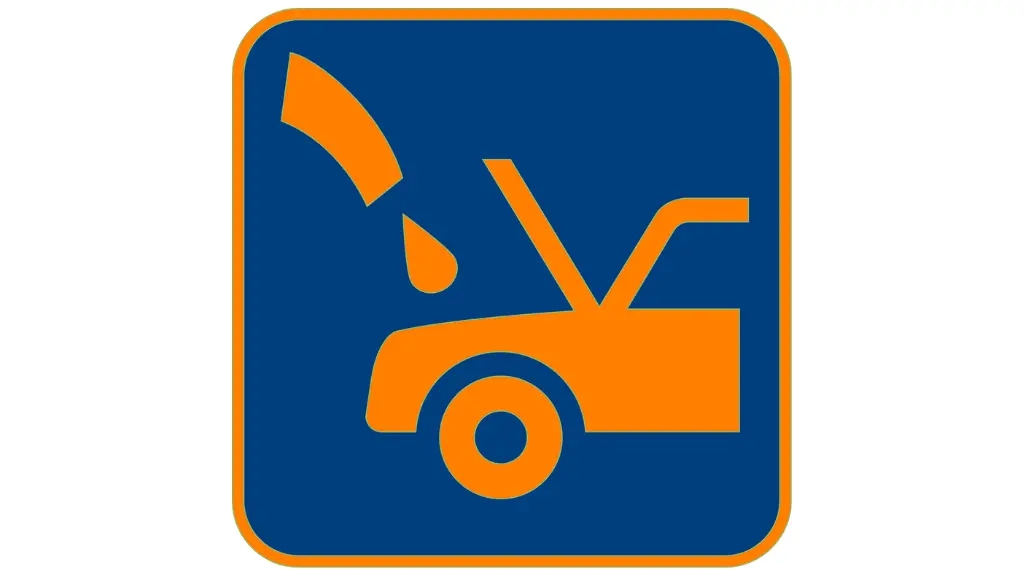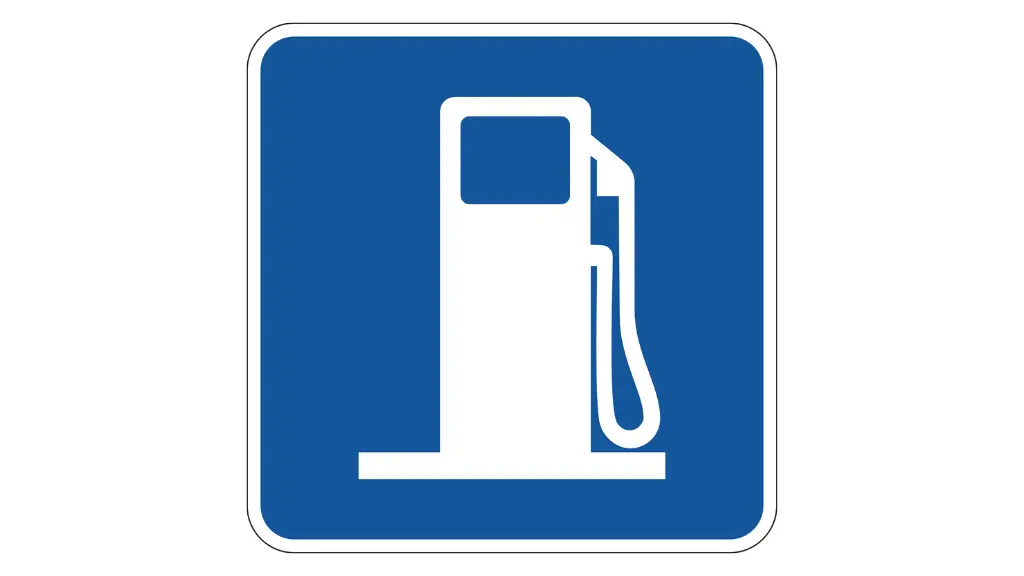Crude Oil Trading Platform: A 2024 Guide

As someone who has been involved in the energy trading industry for several years, I have seen firsthand the importance of having a reliable and efficient crude oil trading platform. With the global demand for oil continuing to rise, it is crucial for traders to have access to a platform that can quickly and accurately process trades and provide real-time market data.
Fortunately, there are several crude oil trading platform available on the market today that offer a range of features and benefits. These platforms allow traders to buy and sell crude oil futures, options, and other derivatives, as well as access market data and analysis tools to help inform their trading decisions. Some platforms even offer advanced trading algorithms and risk management tools to help mitigate potential losses.
Whether you are a seasoned energy trader or just starting out in the industry, having access to a reliable crude oil trading platform is essential for success. In the following article, I will explore some of the top platforms available on the market today and highlight their key features and benefits.
Overview of Crude Oil Trading Platform

As a professional trader, I have found that crude oil trading platform are essential for efficient and profitable trading. In this section, I will provide an overview of crude oil trading platform, including their evolution and the types of trading platforms available.
Evolution of Oil Trading
The crude oil trading industry has come a long way since the days of open outcry trading on the floor of commodity exchanges. The advent of electronic crude oil trading platform revolutionized the industry, making it faster, more efficient, and more accessible to traders around the world.
Today, crude oil trading platform have evolved to include advanced features such as real-time data, analytical tools, and automated trading systems. These platforms have become an integral part of the global oil trading industry, providing traders with access to a vast range of markets and instruments.
Types of Trading Platforms
There are two main types of crude oil trading platform: proprietary and third-party platforms. Proprietary platforms are developed and maintained by individual oil trading firms, while third-party platforms are provided by independent software vendors.
Proprietary crude oil trading platform are designed to meet the specific needs of the trading firm, and may include customized trading algorithms, risk management tools, and other features. Third-party platforms, on the other hand, are designed to be more flexible and accessible, and may be used by multiple trading firms.
Some of the most popular third-party crude oil trading platform include CME Group’s Globex, ICE Futures Europe, and the Intercontinental Exchange (ICE) platform. These platforms offer a range of features and tools, including real-time market data, order management systems, and risk management tools.
In conclusion, crude oil trading platform have become an essential tool for traders in the global oil trading industry. The evolution of these platforms has made trading faster, more efficient, and more accessible, while the availability of both proprietary and third-party platforms provides traders with a range of options to choose from.
Choosing the Best Oil Trading Platform

As an oil trader, choosing the best crude oil trading platform is crucial for success in the market. With so many options available, it can be overwhelming to decide which platform to use. In this section, I will discuss key features to consider and compare top platforms to help you make an informed decision.
Key Features to Consider
When choosing the best crude oil trading platform, there are several key features to consider. These features will help you determine if a platform is suitable for your trading needs. Some of the features to consider include:
- Security: The platform should have robust security measures to protect your personal and financial information.
- Trading Tools: The platform should provide essential trading tools such as charts, graphs, and indicators to help you make informed trading decisions.
- User Interface: The platform should have an intuitive user interface that is easy to navigate and use.
- Customer Service: The platform should have excellent customer service to help you with any issues you may encounter while trading.
Comparing Top Platforms
To help you choose the best crude oil trading platform, I have compared some of the top platforms in the market. These platforms are:
| Platform | Key Features | Pros | Cons |
|---|---|---|---|
| eToro | Social Trading, User-Friendly Interface | Wide range of trading instruments, Copy Trading feature | High fees, Limited Charting Tools |
| Plus500 | User-Friendly Interface, Tight Spreads | No Commission, Wide range of trading instruments | Limited Charting Tools, No Copy Trading |
| IG | Advanced Trading Tools, Tight Spreads | Wide range of trading instruments, Excellent Customer Service | High Fees, Steep Learning Curve |
As you can see, each platform has its pros and cons. It is essential to consider your trading needs and preferences before choosing a platform. By doing so, you can select the best crude oil trading platform for you.
In conclusion, choosing the best crude oil trading platform requires careful consideration of key features and a comparison of top platforms. By doing so, you can select a platform that is suitable for your trading needs and preferences.
Technical Analysis Tools for Oil Trading

As a crude oil trader, I rely heavily on technical analysis tools to help me make informed decisions. Technical analysis tools are essential for analyzing price movements and identifying trends in the market. In this section, I will discuss two important technical analysis tools that I use for oil trading: charting and indicators, crude oil trading platform and automated trading features.
Charting and Indicators
Charting and indicators are key technical analysis tools that I use to analyze price movements and identify trends in the oil market. Charting tools allow me to visualize price data over a period of time, and identify patterns and trends. I use charting tools such as Thinkorswim and Tradestation oil futures to create charts that help me analyze price movements and identify potential trading opportunities.
In addition to charting tools, I also use indicators to help me analyze price movements and identify trends in the market. Indicators are mathematical calculations based on price and/or volume data that help me identify potential trading opportunities. I use a variety of indicators such as moving averages, Bollinger Bands, and Relative Strength Index (RSI) to help me make informed trading decisions.
Automated Trading Features
Automated trading features are another important technical analysis tool that I use for oil trading. Automated trading features allow me to set up rules and conditions for trading, and execute trades automatically based on those rules. This helps me to take emotion out of the crude oil trading platform process and make more objective trading decisions.
I use automated trading features such as Thinkorswim and Tradestation oil futures to set up rules and conditions for trading, and execute trades automatically based on those rules. For example, I can set up a rule that says if the price of oil reaches a certain level, I will automatically buy or sell a certain number of contracts.
In conclusion, technical analysis tools such as charting and indicators, and automated trading features are essential for oil trading. These tools help me to analyze price movements, identify trends, and make informed trading decisions. By using these tools, I am able to take emotion out of the trading process and make more objective trading decisions.
Oil Trading Software Solutions

As a trader in the crude oil market, having access to reliable and efficient oil trading software is crucial. There are a variety of options available, including desktop and web-based solutions, as well as mobile trading capabilities.
Desktop vs Web-based Solutions
Desktop oil trading software solutions are installed directly onto a trader’s computer and offer a high level of customization and control. These types of solutions typically offer more advanced charting and analytical tools, making them ideal for experienced traders.
On the other hand, web-based solutions allow traders to access their accounts and trade from any device with an internet connection. These types of solutions are often more user-friendly and require less maintenance, making them a great option for novice traders.
Mobile Trading Capabilities
In today’s fast-paced world, traders need to be able to access their accounts and trade on-the-go. Many oil trading software solutions offer mobile trading capabilities, allowing traders to monitor their positions and execute trades from their smartphones or tablets.
When choosing an oil trading software solution, it’s important to consider your individual needs and preferences. Do you require advanced charting tools and customization options, or are you looking for a more user-friendly and mobile solution? By weighing the pros and cons of each option, you can find the perfect oil trading software solution to meet your needs.
Automated Trading in Crude Oil

As a trader in the crude oil market, I have found that automation has become an essential tool for success. Automated trading software can help me execute trades more efficiently, with greater accuracy and speed. It can also help me make more informed decisions based on market data.
Benefits of Automation
One of the primary benefits of automated trading in crude oil is the ability to execute trades quickly and efficiently. With automated trading software, I can set up specific rules and parameters for trades, and the software will execute them automatically. This can save me time and effort, and it can also help me avoid emotional trading decisions.
Another benefit of automation is the ability to analyze market data more effectively. Automated trading software can analyze large amounts of data quickly and accurately, providing me with insights into market trends and patterns. With this information, I can make more informed trading decisions and increase my chances of success.
Selecting Auto Trading Software
When selecting automated trading software for crude oil, there are several factors to consider. First, I want to ensure that the crude oil trading software is reliable and secure. I also want to look for software that offers a range of features and customization options, so I can tailor it to my specific trading needs.
Another crucial aspect to take into account is the pricing of the software. While some automated trading software can be expensive, I have found that the benefits of automation often outweigh the cost. Finally, I want to look for software that offers good customer support, so I can get help if I encounter any issues or have questions about the crude oil trading software.
Overall, automated trading software has become an essential tool for me as a crude oil trader. By automating my trading process, I can execute trades more efficiently and make more informed decisions based on market data. When selecting automated trading software, it is important to consider factors such as reliability, features, cost, and customer support.
Futures Trading in Oil Markets

As a crude oil trader, one of the most popular ways to gain exposure to the market is through futures trading. Futures contracts are standardized agreements to buy or sell a certain amount of a commodity at a specific price and date in the future. In the oil markets, futures contracts are traded on exchanges such as the NYMEX, ICE, and CME.
Understanding Oil Futures
Oil futures contracts are typically based on a benchmark crude oil, such as Brent or WTI. The contracts specify the quantity of oil being traded, the delivery location, and the delivery date. The price of the contract is determined by supply and demand factors, as well as geopolitical events and economic indicators.
Traders can take either a long or short position in a futures contract, depending on their market outlook. If a trader expects the price of oil to increase, they can buy a futures contract. If they expect the price to decrease, they can sell a futures contract. Futures trading allows traders to hedge their risk and speculate on price movements.
Strategies for Futures Trading
There are several strategies that traders can use when trading oil futures. One common strategy is called spread trading, where a trader simultaneously buys and sells two different futures contracts in order to profit from the price difference between them. Another strategy is called options trading, where a trader buys or sells options contracts that give them the right, but not the obligation, to buy or sell a futures contract at a certain price.
Several crude oil trading platform, such as oil futures Thinkorswim and Tradestation oil futures, offer traders access to oil futures markets. These platforms provide traders with real-time market data, advanced charting tools, and order execution capabilities.
In conclusion, futures trading is a popular way for crude oil trading platform to gain exposure to the market. By understanding the basics of oil futures contracts and using effective trading strategies, traders can profit from price movements and manage their risk.
Risk Management in Oil Trading

As an oil trader, managing risk is crucial to ensuring long-term profitability. In this section, I will discuss two key aspects of risk management in oil trading: setting risk parameters and diversification and hedging.
Setting Risk Parameters
Setting risk parameters involves determining the maximum amount of risk that a trader is willing to take on for a given trade. This can be done by setting limits on factors such as price, volume, and time. For example, a trader may set a stop-loss order to automatically sell a contract if the price drops below a certain level. This helps to limit potential losses and protect against market volatility.
Another important aspect of setting risk parameters is determining the appropriate level of leverage to use. While leverage can amplify potential profits, it also increases the risk of losses. It is important to carefully consider the level of leverage that is appropriate for each trade.
Diversification and Hedging
Diversification and hedging are two strategies that can help to mitigate risk in oil trading. Diversification involves spreading investments across different markets, regions, or types of oil. This helps to reduce the impact of any single market or event on a trader’s portfolio. For example, a trader may invest in both Brent and WTI crude oil to diversify their exposure to different types of crude.
Hedging refers to the practice of assuming positions that counterbalance the possible losses incurred in alternative positions. For example, a trader may take a long position in Brent crude oil and a short position in WTI crude oil. If the price of Brent crude falls, the trader’s long position will generate losses, but these losses will be offset by gains from the short position in WTI crude.
Regulations and Compliance
As a crude oil trading platform, we understand the importance of adhering to regulations and compliance. It is crucial to ensure that all trading activities are conducted within the legal framework and guidelines set by the relevant authorities. This section will discuss the regulatory bodies and compliance measures that traders need to be aware of when using our platform.
Regulatory Bodies
The crude oil trading platform is highly regulated, and traders must comply with various regulatory bodies. The primary regulatory bodies that oversee crude oil trading platform include the Commodity Futures Trading Commission (CFTC) and the National Futures Association (NFA). These regulatory bodies are responsible for ensuring that trading activities are conducted in a fair and transparent manner.
The CFTC is a government agency that regulates the derivatives markets, including crude oil trading platform. The agency sets rules and regulations that traders must follow to ensure that trading activities are conducted in a fair and transparent manner. The NFA is a self-regulatory organization that works in conjunction with the CFTC to ensure that traders comply with the rules and regulations set by the agency.
Compliance for Traders
As a trader on our crude oil trading platform, you must comply with various compliance measures. These measures are designed to ensure that trading activities are conducted in a fair and transparent manner. Some of the compliance measures that traders must adhere to include:
Know Your Customer (KYC): Traders must provide accurate and up-to-date personal information to verify their identity. This measure helps to prevent fraudulent activities on the platform.
Anti-Money Laundering (AML): Traders must comply with AML regulations to prevent money laundering activities on the platform. This measure helps to ensure that trading activities are conducted in a transparent manner.
Risk Management: Traders must manage their risk exposure to prevent losses and ensure that trading activities are conducted in a responsible manner.
Conclusion
In conclusion, compliance with regulations is crucial for traders on our crude oil trading platform. By adhering to the rules and regulations set by the regulatory bodies, traders can ensure that trading activities are conducted in a fair and transparent manner.

Overall, effective risk management is essential for success in oil trading. By setting risk parameters and using diversification and hedging strategies, traders can minimize potential losses and maximize profits. See also this related article: Merrill Edge OTC Stocks: A Detailed Guide.

Pingback: Bookmap Futures: A Guide to Trading with Bookmap - Trade Center Pro